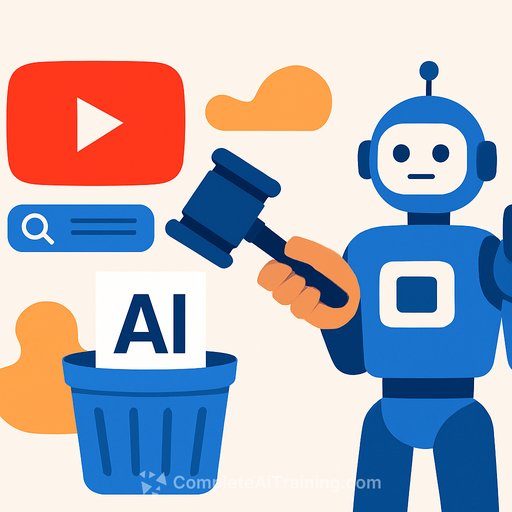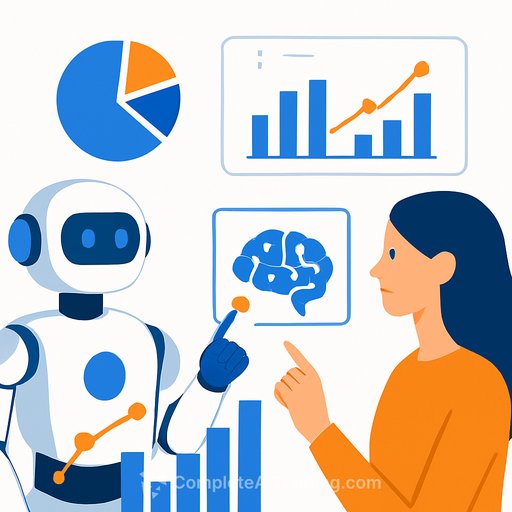5 ways to use AI in media without wasting energy
AI can save hours in marketing, but it also consumes serious electricity and water. Large models require massive compute, and there isn't enough clean energy to cover unchecked use. That's the tradeoff: speed and scale vs. real-world costs.
The goal isn't to avoid AI. It's to use it with intention. Here are five practical ways to keep your work sharp and your footprint smaller.
1) Default to classic search when it works
Researchers estimate a single ChatGPT-style query can use around five times more electricity than a standard web search. If you just need a fact, a URL, or a quick definition, use Google or Bing. Save generative models for tasks that truly need synthesis or creation.
- Use search for: facts, brand sites, pricing pages, news
- Use AI for: drafting copy, summarizing long docs, turning notes into outlines
- Tip: disable automated AI results in your browser to avoid unnecessary compute
2) Keep prompts short. Skip the niceties.
Models consume more energy for every token they process. Don't feed them extra words. Be direct, set limits, and keep the conversation tight.
- Example: "Summarize into 5 bullet points, max 80 words."
- Example: "Give 3 headline options, no explanations."
- Cut fillers like "please" and "thank you." The Earth appreciates it.
3) Ask vendors for emissions data
Hold platforms accountable. Ask for energy, water, and carbon metrics, plus the data center region used for your workloads. Choose services that disclose their footprint and show progress over time.
For model comparisons, review community trackers like the AI Energy Score Leaderboard. Pick the smallest effective model for the job.
4) Use AI to cut waste in media planning
Let AI analyze your programmatic supply paths to remove unnecessary intermediaries that inflate emissions and CPMs. Fewer hops means less data shuttling and less server time.
- Request SPO reports, then consolidate supply to efficient paths
- Block made-for-advertising sites; prioritize direct, quality inventory
- Cap frequency, compress creatives, and avoid heavy autoplay video where it doesn't convert
- Audit log files to identify low-value queries and prune them
5) Let AI enhance, not replace, your team
Efficiency doesn't equal effectiveness. Handing your strategy, creative, and reporting to a bot invites bland work and brand risk. Use AI as an extra set of eyes: idea starter, draft maker, QA pass-then apply human judgment.
- Have AI produce options; have humans set direction and voice
- Use AI to stress-test messaging and catch inconsistencies
- Keep critical thinking, brand nuance, and ethics with the team
Reason for optimism
There's real progress on the climate side of AI too. Google's GNoME has identified 2.2 million new crystals, including 380,000 stable materials that could enable cleaner semiconductors and electric vehicles-equivalent to centuries of discovery at human pace. The tech isn't the problem; careless use is.
Next step for marketers
If you want to build low-footprint workflows without sacrificing performance, explore practical training for marketing teams: AI Certification for Marketing Specialists.
Use AI where it actually moves the needle. Keep prompts lean. Choose efficient tools. Cut waste in the ad supply chain. Lead by example-and ship work you're proud of.
Your membership also unlocks:






